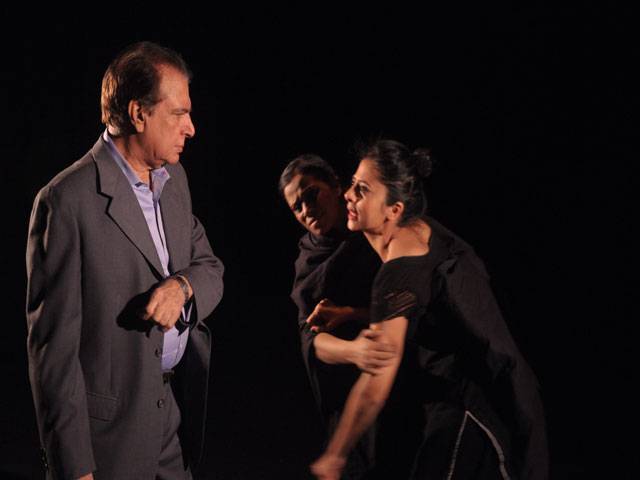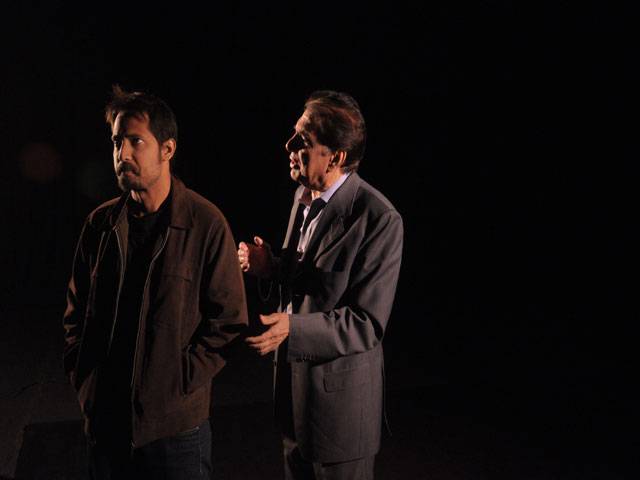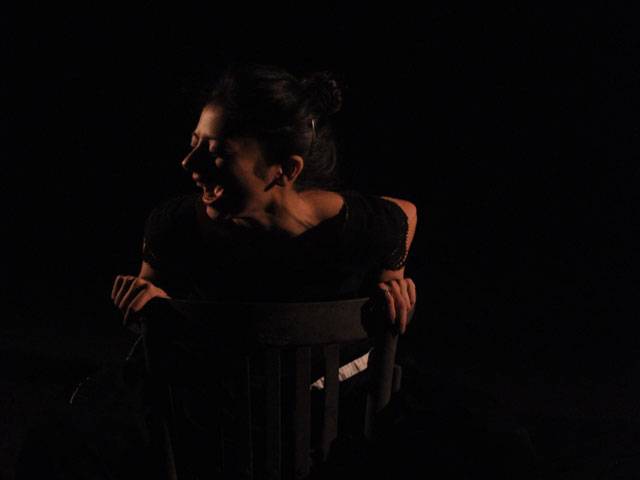By Muttahir Ahmed Khan - Italian Nobel Laureate Luigi Pirandello’s famous play ‘Six Characters in Search of an Author “is being staged, these days, by The National Academy of Performing Arts with Urdu Adaptation as “Chhe kirdar aik musannif ki talash mein”. The play, which was created in 1922 by Pirandello and earned him a Nobel Prize, is a unique masterpiece due to the playwright’s meticulous and delicate use of the tools such as existentialism and absurdum. The play, in Saadat Hasan Manto’s words, brings the inner filth of human beings out and makes them face their reality with offensiveness. Keeping in view our indigenous culture and the taboos attached to it, the play is a bold one as it lays bare the sores of incest and human bestiality.
As the play unfolds, we come across an assembly of actors who are fully busy, with the director, in preparation for rehearsal, on the set of a play. All of a sudden, they are interrupted by the arrival of six characters who forcefully make their way to the set by pushing the security guard. The leader of the characters, the father, informs the manager that they are looking for an author. He explains that the author who created them did not finish their story, and that they therefore are unrealized characters who have not been fully brought to life. The manager tries to throw them out of the theater, but becomes more intrigued when they start to describe their story.
The main character is the father who married the woman (the mother) accompanying him with 4 children. Things went well until she fell in love with his male employee. Coming to know this and getting rid of her wife the father encouraged her to elope with that man. She departs from him, leaving behind the eldest son who becomes bitter for having been abandoned.
The mother starts a new family with the other man and has three children. The father starts to miss her, and actively seeks out the other children in order to watch them grow up. The step-daughter recalls that he used to wait for her after school in order to give her presents. The other man eventually moves away from the city with the family and the father loses track of them.
When the second husband dies, the mother and her children return to the city. She gets a job at a boutique run by a lady called madam Shamshad. But, actually the lady was interested in using her daughter as a prostitute. One day the father arrives there as a client and Madam offers him the daughter. He starts to seduce her but they are interrupted when the mother sees him and screams out. Embarrassed, he allows the step-daughter and the entire family to move in with him and, hence, starts another conflict between his elder son and the rest of the family.
After listening to the whole story and finding it interesting and moving, the director agrees to become the author for them and has them start to play the scene where the father is in the dress shop meeting the step-daughter for the first time. He soon stops the plot and has his actors attempt to mimic it, but both the father and the step-daughter protest that it is terrible and not at all realistic. He finally stops the actors and allows the father and step-daughter to finish the scene.
Pondering over the situation, the director changes the setting for the second scene and forces the characters to perform it in the garden of the father's house. The mother approaches the son and tries to talk to him, but he refuses and leaves her. Entering the garden, he sees the youngest daughter drowned in the fountain and rushes over to pull her out. In the process, he spots the step-son with a revolver. The young boy shoots himself, causing the mother to scream out for him while running over to him. The director, watching this entire scene, is unable to tell if it is still acting or if it is reality. Fed up with the whole thing, he calls it a day and the curtain falls.
The Director of the play Fawad Khan did well with the combination of senior most thespians and blooming artists. Rahat Kazmi (the father). Meher Jafferi (the daughter) Hammad (the director) and other artists played their roles with appreciable skill.








